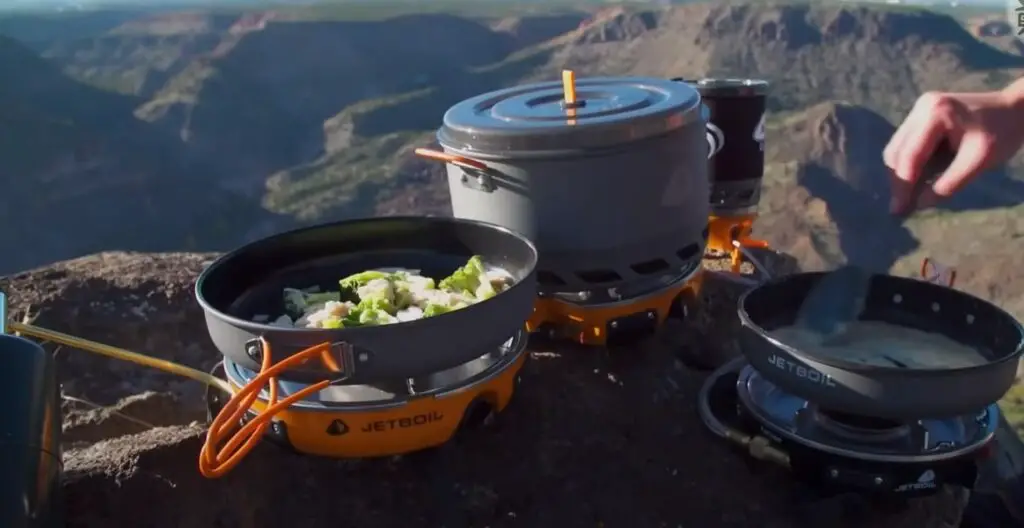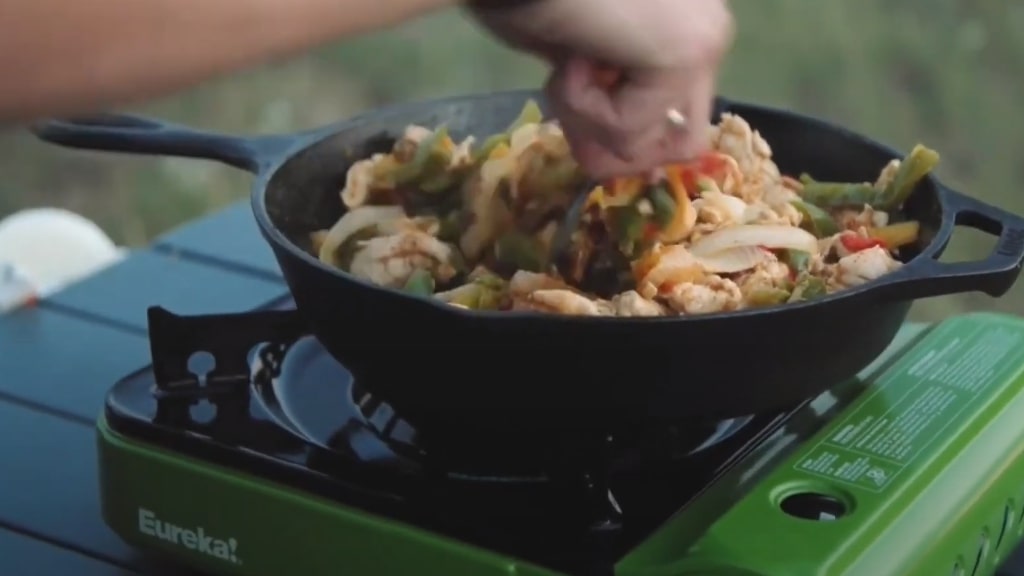
 Save Upto $850 ›
Save Upto $850 ›
Portable butane and propane gas stoves are now the new-fashion and the trend in the market. Their compatibility and functionality helps them surge their fame.
These gas stoves distribute heat uniformly over the bottoms of the stovetop and bakeware, reducing the risk of scorching sauces or burning cakes and casseroles.
These stoves are commonly used for camping and outdoor activities and these are much more safe, convenient and easy-to-use as compare to other big gas stoves.
However, in some rare scenarios using a portable gas stoves (especially pre-2015) with integrated gas canisters can pose significant safety risks (if not dealt properly).
The stove is liable to explode and cause injury if the butane gas canister overheats and the shut-off valve malfunctions. Therefore, it must be utilized with great caution.
So in order to avoid these kind of situations. We here have tried to concise the important key points which could help you to avoid any safety hazards
If you buy a new portable butane gas stove with an integrated cylinder, follow the guidelines below to ensure you use it safely:
Make sure the portable butane gas stove is safety certified. If it is not safety certified, consider disposing of it or returning it to the supplier/manufacturer.
Always follow the manufacturer’s directions while using a portable stove.
The portable stoves are intended to be used for brief periods of time. Do not use the stove for any longer than the manufacturer specifies.
You should constantly be aware of the possible dangers of fuel gas, but one method to avoid an accident is to check for leaks on a regular basis.
Follow the instructions below to test for leaks while running your stove or range.
Check that all connections are secure and that there are no gas leaks. Spray the connecting location with a soapy water solution.
There is a leak if bubbles develop. Tighten as needed, then retest. Do not use the stove if bubbles continue to form.
Replace any faulty components before using it, or see a gas appliance specialist if you are unclear how to make it safe to use.
*Note: Before you go on your journey, inspect the condition of the gas hose and the operation of the stove.
Stay away from combustibles or burnable items while using your gas stove.
When using a stove, never leave it alone or unattended.
To avoid burning your fingertips, make sure the flame does not extend out from beneath the cookware on the burners.
Cookware should be non-flammable and non-corrosive. No plastic, melamine, or glass utensils should be used with your gas stove.
When the flame is cranked to high, the bottom of your cookware or utensil must cover the flame; in other words, the fire should not escape from the bottom to the sides of the equipment.
Larger pans than those specified in the instruction guidelines will direct heat back towards the gas canister, causing it to overheat and explode.
Pans or pots larger than 200mm must not be used (except if it is indicated as safe by the company / manufacturer) Because a large pot focuses heat down into the gas canister, causing it to overheat and explode.
Portable gas burners should never be used indoors or in tight quarters.
Check that all of your valves are in the off position before adding the propane canister. Thorough cleaning and frequent maintenance will not only reduce hazard threats, but will also extend the life of the equipment.
It will, however, assist to extend the life of your stove. Before disassembling the stove, always read the handbook or care guide.
In the case of a gas fire, it is critical to stay cool and respond swiftly. Depending on where you are, the best course of action is to get everyone out of harm’s way before calling the emergency services.
If it is safe to do so, immediately switch off the gas cylinder and remove it from direct heat.
There’s a chance that turning off the gas will put out the fire.

The amount of attention you give to tiny things when cooking outside may have a big impact on how safely you use your gas burner.
Ascertain that the surface on which your stove is installed is both robust and non-flammable.
Plastic utensils or containers, foil paper wrappings, and camping equipment such as torches, for example, must be kept a safe distance away from the gas stove, especially when it is in operation.
Keeping cookware handles tucked to the side reduces the possibility of pots and pans falling over and splashing hot food everywhere.
Cooking inside your tent is never a good idea. For one thing, there may be items inside your tent (as well as your tent) that might easily catch fire, but it also puts you at danger of carbon monoxide (CO) poisoning.
Gas cylinders should be stored upright in a well-ventilated place, never inside a car, caravan, tent, or camping trailer except in a licensed cylinder compartment.
Keep children away from the stove whenever it is in use or is still hot.
Always switch off the stoves and gas immediately after usage.
Wrapping aluminum foil on or around the burner is not recommended.
Do not use the stove for any longer than the manufacturer recommends.
Remove the gas canister from the stove after use. Cap the canister’s valve and keep it somewhere cold and away from fires. Even if the canister is empty, perform this step.
Do not mess with the stove or try to fix a broken stove on your own. If the portable butane gas stove isn’t working or igniting properly, turn it off.
Avoid leaving a lit stove unattended or keeping combustible things close while it is in use.
If you smell gas, extinguish all flames and switch off the stove, gas valves, and regulators. Call your authorized dealer right away to report the leak.
Never operate the stove in such a way that the canister overheats. Do not, for example, use them to heat up heat beads.
Do not use the portable butane gas burner if it does not appear to be running or lighting properly. No tampering with the device or its controls is permitted.
Portable gas burns at a rate of 2g of gas per minute on average. This implies that under ideal conditions, a regular 220g aerosol gas canister should last around 2 hours and a standard 450g gas cartridge should last about 3.5 hours.
So there are some fire hazards of portable gas stoves. Since these stoves are built particularly for utilization in outdoor. Therefore, they tend to require some extra care.
However, that necessarily shouldn’t imply that portable gas stoves are dangerous and shouldn’t be use. As narrated above, these gas stoves are way much more safer than one could expect.
They are very good to use but with some precautions as stated above.